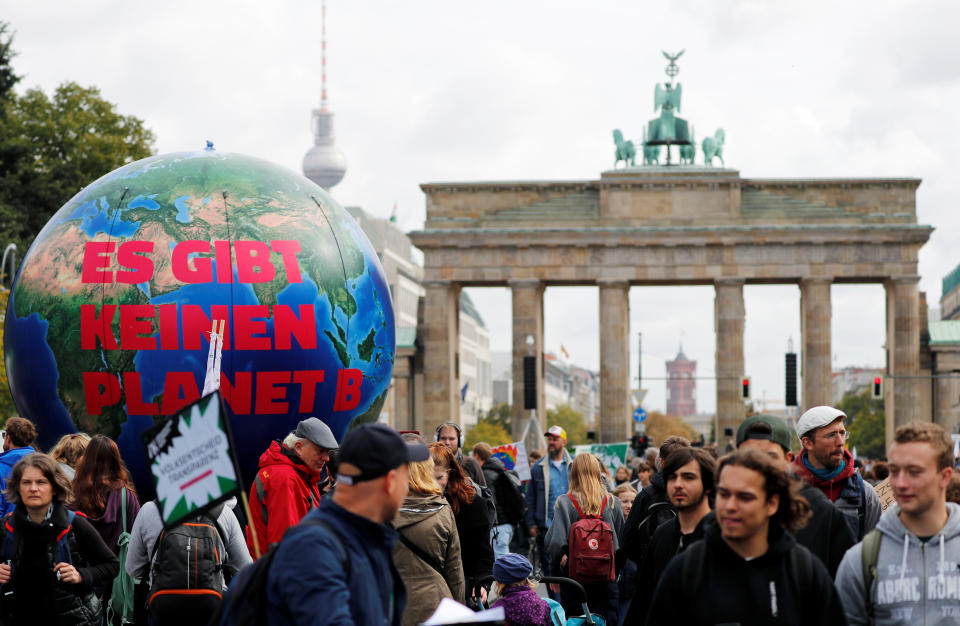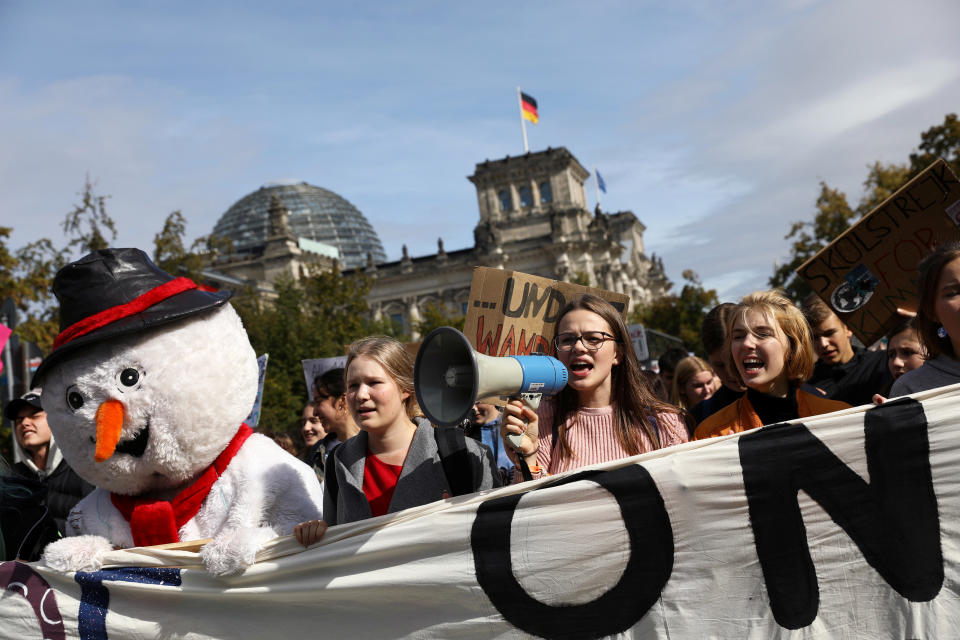Germany unveils €54bn climate plan as thousands in Berlin join global strike

Tens of thousands of climate demonstrators brought central Berlin to a standstill on Friday, as chancellor Angela Merkel’s government unveiled its €54bn-plus climate-change mitigation plan.
After months of talks and a meeting that ran for 18 hours through the night into Friday afternoon, Germany’s two ruling coalition parties thrashed out a €54bn (£44bn) plan to lower the country’s CO2 emissions between now and 2023.
The key sticking point for Merkel’s Christian Democrats (CDU) and its coalition partner, the Social Democrat (SPD), was funding the plan. The SPD insisted that citizens should not bear the brunt of the costs, while the CDU was determined not to incur new debt or abandon its beloved “black zero” balanced budget.
At a press conference to present the 20-page climate plan, Merkel quoted the 16-year-old Swedish climate activist Greta Thunberg, saying we must “unite behind the science” and stressed that climate change was a reality.
Carbon emissions pricing will start in 2021, at a fixed price of €10 per ton of C02, rising to €35 by 2025, which will mean a 12 cent increase on petrol or diesel for motorists.
Households will be hit with higher costs for heating oil, and domestic oil heaters will be banned from 2026. Meanwhile, people replacing their old oil heaters with environmentally friendly versions will be reimbursed up to 40% of the cost.
The vehicle tax will be increased on cars emitting more than 115mg of CO2 emissions per km — there are many vehicles that are already in breach of this limit, according to this list from Greenpeace
Subsidies for electric cars will continue until 2025, up to a purchase price of €40,000, which sounds good in theory but currently there are not many reasonably priced electric cars on the market.
Read more: Volkswagen rebrands and wheels out its new mass-market car
Germany’s national railway will get more funding to expand its network and the VAT on train tickets will be slashed from 19% to 7%. On the other hand, tax on domestic flight tickets will be increased.

The climate package is being criticised by opposition parties and environmental organisations as a piecemeal strategy, far from comprehensive enough to make a difference. The German Environmental Help NGO (Deutsche Umwelthilfe) tweeted: "This is not a breakthrough, this is a failure across the board.”
Under the Twitter hashag #NotMyKlimapaket (Not My Climate Package) people accused the ruling centre-right and centre-left parties of cobbling together a plan that does the bare minimum to protect the environment, puts a financial burden on the less-wealthy, and is designed to keep the shaky coalition in Berlin stumbling along until the next election in 2021.
Germany’s goal is to reduce CO2 emissions by 55% from 1990 levels by 2030. It hasn’t been doing well so far, admitting last summer that the country would miss its 2020 goal of a 40% reduction, coming in at just 32%.
READ MORE: Germany braces for 500 climate demonstrations as part of global green protest
Climate change has become a hot political topic in Germany, causing a surge in support for the Greens, as well the far-right Alternative for Germany (AfD). The AfD has won a lot of support in eastern German states by harnessing fears of job losses over Germany’s planned exit from coal mining.

 Yahoo Finance
Yahoo Finance 